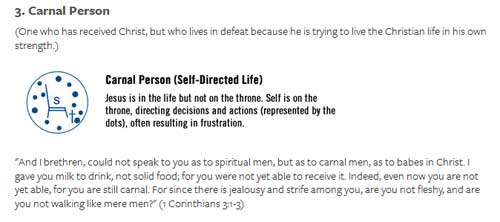Calvin on the Active Obedience of Christ
 "Now someone asks, How has Christ abolished sin, banished the separation between us and God, and acquired righteousness to render God favorable and kindly toward us? To this we can in general reply that he has achieved this for us by the whole course of his obedience. This is proved by Paul’s testimony: “As by one man’s disobedience many were made sinners, so by one man’s obedience we are made righteous” [Romans 5:19]. In another passage, to be sure, Paul extends the basis of the pardon that frees us from the curse of the law to the whole life of Christ: “But when the fullness of time came, God sent forth his Son, born of woman, subject to the law, to redeem those who were under the law” [Galatians 4:4-5]. Thus in his very baptism, also, he asserted that he fulfilled a part of righteousness in obediently carrying out his Father’s commandment [Matthew 3:15]. In short, from the time when he took on the form of a servant, he began to pay the price of liberation in order to redeem us.
"Now someone asks, How has Christ abolished sin, banished the separation between us and God, and acquired righteousness to render God favorable and kindly toward us? To this we can in general reply that he has achieved this for us by the whole course of his obedience. This is proved by Paul’s testimony: “As by one man’s disobedience many were made sinners, so by one man’s obedience we are made righteous” [Romans 5:19]. In another passage, to be sure, Paul extends the basis of the pardon that frees us from the curse of the law to the whole life of Christ: “But when the fullness of time came, God sent forth his Son, born of woman, subject to the law, to redeem those who were under the law” [Galatians 4:4-5]. Thus in his very baptism, also, he asserted that he fulfilled a part of righteousness in obediently carrying out his Father’s commandment [Matthew 3:15]. In short, from the time when he took on the form of a servant, he began to pay the price of liberation in order to redeem us.


 Relativists often tell me they think that racism, genocide and torture is wrong and think everyone should think likewise .. to which I respond that this demonstrates that they believe in objective morality. To this they often reply:
Relativists often tell me they think that racism, genocide and torture is wrong and think everyone should think likewise .. to which I respond that this demonstrates that they believe in objective morality. To this they often reply: not to treat us as our sins justly deserve. Any attempt to add our covenant faithfulness as part of the price of redemption after regeneration and justification is an "attempt to attain our goal by human effort" and thus a complete misapprehension of the fullness of the gospel of Jesus Christ. We must, therefore, reject any and all attempts to maintain a judicial standing before God by any act on our part. Salvation is of the Lord.
not to treat us as our sins justly deserve. Any attempt to add our covenant faithfulness as part of the price of redemption after regeneration and justification is an "attempt to attain our goal by human effort" and thus a complete misapprehension of the fullness of the gospel of Jesus Christ. We must, therefore, reject any and all attempts to maintain a judicial standing before God by any act on our part. Salvation is of the Lord.
 The Holy Spirit has joined us to Christ and our supernatural faith is like a shield because it continually lays hold of Christ who covers us with His righteousness which makes us immune to the attacks of Satan. Satan paces around the earth hoping to falsely accuse the brethren as being not worthy of the kingdom of God. Of course if we remembered our own record, he would be right, Of ourselves, in armor of our own crafting we have no defense against Satan's fiery darts. And if we ascribe the shield of faith to something we muster up in the flesh we would be unprotected and completely open to his attacks. But the shield of faith is not something we have to muster up ... it is a piece of armor the Lord has given us to use Only Christ our shield protects us.
The Holy Spirit has joined us to Christ and our supernatural faith is like a shield because it continually lays hold of Christ who covers us with His righteousness which makes us immune to the attacks of Satan. Satan paces around the earth hoping to falsely accuse the brethren as being not worthy of the kingdom of God. Of course if we remembered our own record, he would be right, Of ourselves, in armor of our own crafting we have no defense against Satan's fiery darts. And if we ascribe the shield of faith to something we muster up in the flesh we would be unprotected and completely open to his attacks. But the shield of faith is not something we have to muster up ... it is a piece of armor the Lord has given us to use Only Christ our shield protects us.